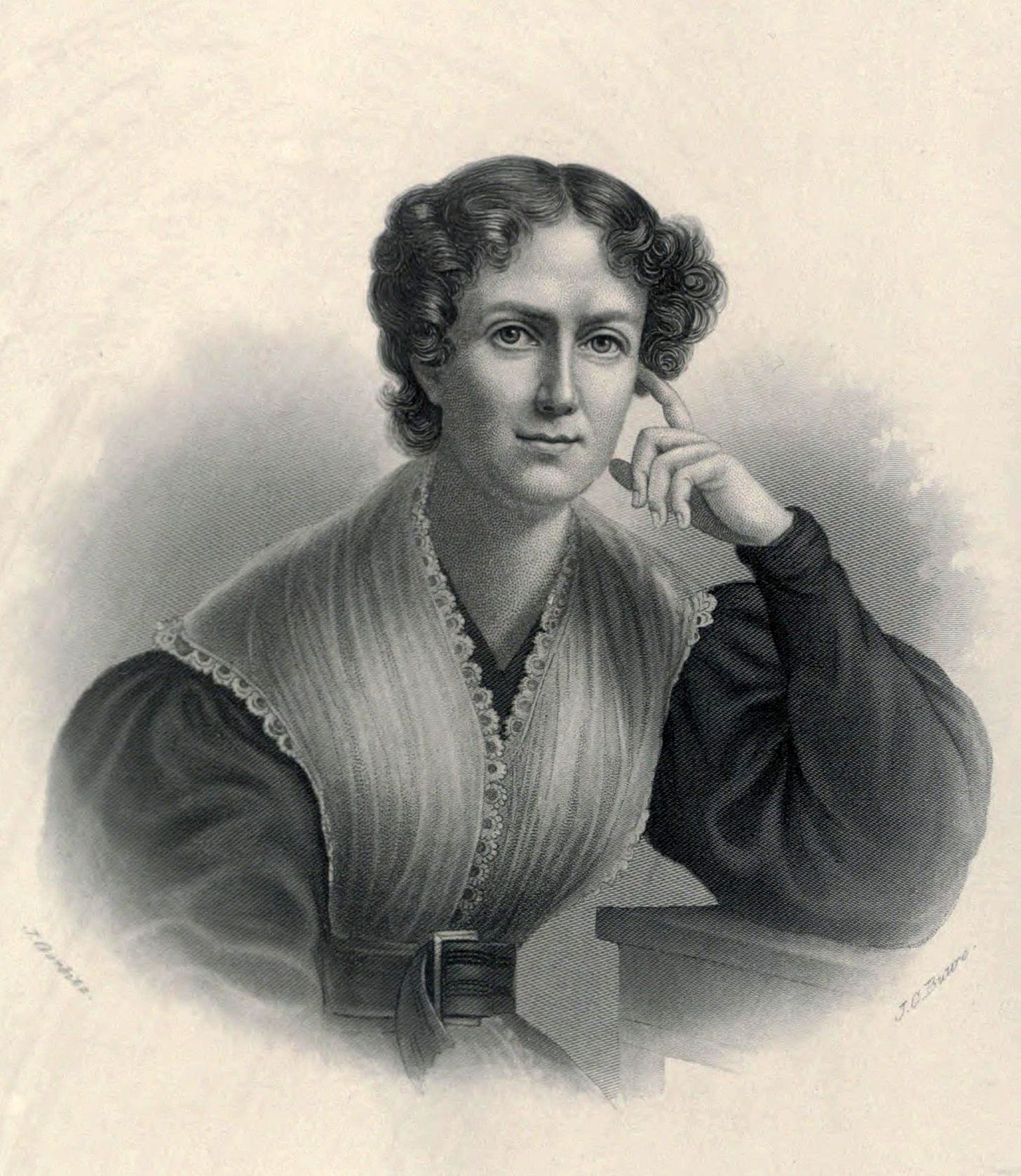Some Quick Thoughts on Frances Wright
Frances (not Fanny) Wright was an important early freethinker who grew up in Britain before coming to America in the early 1820s. I’ll have a lot more to say about her soon, but in the meantime I recently read Celia Eckhardt’s 1984 biography of Frances Wright. Titled Fanny Wright, Rebel in America, the book was a thoroughly depressing psychohistory of a radical reformer who Eckhardt concluded was simply bipolar.
I feel a little bad saying that, because I wanted to like this book. Frances Wright was a remarkable person living in a remarkable time. She captivated Jeremy Bentham and Mary Shelley, traveled with Lafayette, visited Jefferson at Monticello, and started the first cooperative community in America dedicated to addressing the pressing issue of slavery. While Eckhardt doesn’t fail to mention these events, the way she tells the story focuses the reader’s attention on the “imperious self-absorption of a rich heiress brought up to expect subservience from others,” in the words of a 1984 reviewer for The Women’s Review of Books. The fact that Eckhardt herself had credentials in the 1980s women’s movement (and possibly the Harvard University Press logo?) seems to have prevented anyone from challenging or even questioning her interpretation of Wright’s mental state or her portrayal of Wright’s life as a series of doomed-to-failure, egotistical “tries for greatness” in a man’s world.
I haven’t read all the sources Eckhardt used for this biography, so I can’t yet say conclusively why her interpretation is flawed. However, I have a few reasons for thinking so. First, Frances Wright earned the respect and admiration of many respectable people, including the subject of my biography, Dr. Charles Knowlton. Second, having written a biography of Knowlton, I am acutely aware how easy it would have been for me to portray him as just a psychologically messed-up crank. Finally, Eckhardt researched and wrote her biography in the late 70s and early 80s, and I couldn’t help thinking of Fawn Brodie a bit, as I read it. Brodie wrote a famous psychobiography of Jefferson in 1974. Personally, psychohistory often strikes me as being a combination of therapy and projection.
Although unsatisfying, Fanny Wright was a valuable source of references, and I appreciate this very much. I’ll definitely be digging into them, because Frances Wright is a key figure in 19th-century transatlantic freethought. If I find (as I suspect I may) that I feel differently about Wright’s life and accomplishments, I may take a crack at writing about her life myself.




